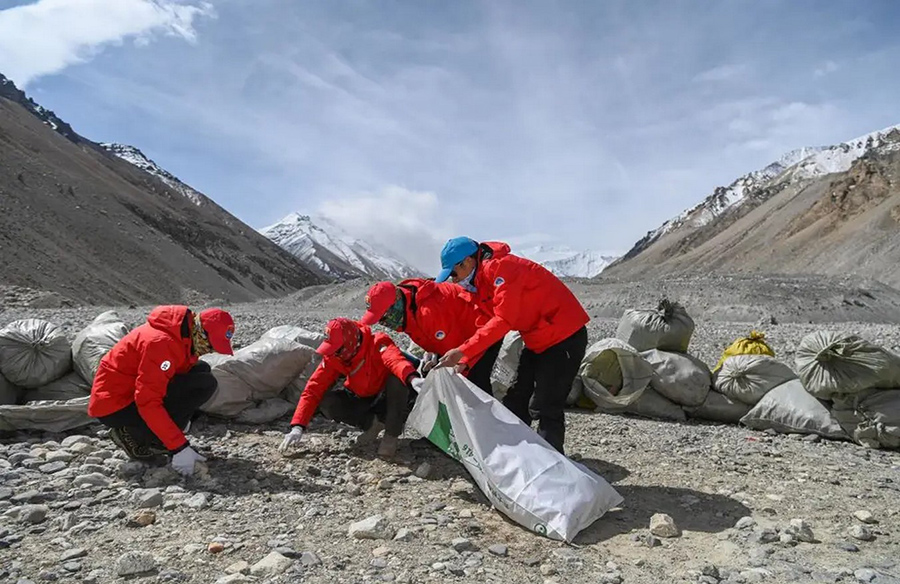Authorities overseeing Mount Everest, the world’s highest peak, are instituting new regulations requiring climbers to purchase poop bags and carry their waste back down for proper disposal. This initiative aims to address mounting concerns over unsanitary conditions and environmental degradation in the Everest region.
The Need for Action
Mingma Sherpa, chairman of the Pasang Lhamu rural municipality, highlighted the growing problem of foul odors and visible waste, attributing it to the extreme cold conditions that impede waste degradation. Complaints about the unsightly and unhygienic conditions have prompted authorities to take action to preserve the area’s pristine environment and reputation.
Challenges at Higher Elevations
While climbers traditionally disposed of waste by digging holes in the snow at lower altitudes, the lack of snow cover at higher elevations necessitates alternative solutions. At campsites closer to the summit, open defecation has become unavoidable, exacerbating the waste management challenge.
Addressing the Issue
Chhiring Sherpa, CEO of the Sagarmatha Pollution Control Committee (SPCC), emphasized the severity of the waste problem, estimating significant quantities of excrement between base camp and the summit. To tackle this issue, the SPCC plans to procure specialized poop bags equipped with chemicals to solidify waste and mitigate odor.
Implementation Plan
The municipality has authorized the procurement of approximately 8,000 poop bags from the US, which will be made available for purchase at base camp. Climbers will be required to carry these bags during their ascent and deposit them upon their return for inspection. This proactive measure aims to enforce responsible waste management practices among climbers.
Long-standing Environmental Concerns
Mount Everest has long been plagued by environmental degradation, with discarded equipment and human waste littering its slopes. This not only poses risks to the natural ecosystem but also threatens the health of local communities. Implementing effective waste management measures is crucial to preserving the ecological integrity of this iconic mountain.
In summary, the introduction of poop bags and waste retrieval requirements represents a significant step towards mitigating environmental damage and promoting sustainable practices on Mount Everest. By fostering a culture of responsible stewardship, authorities aim to safeguard this natural wonder for future generations of climbers and enthusiasts.




Leave a Reply